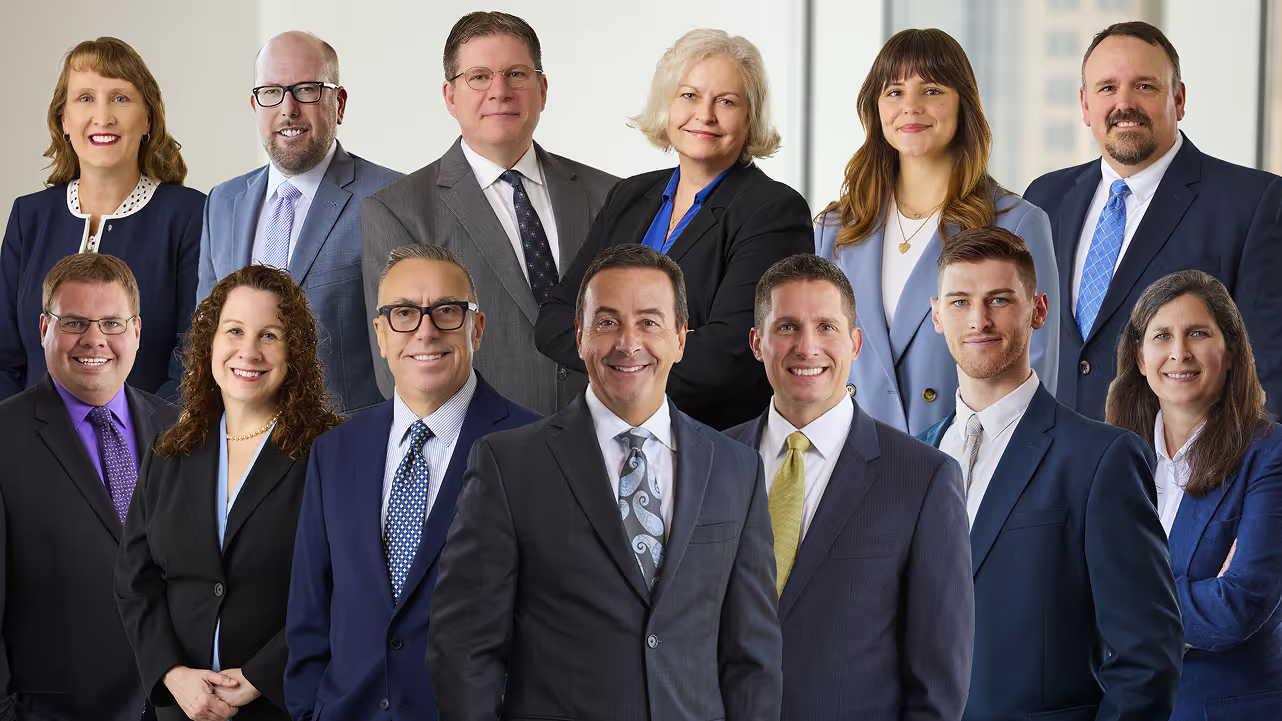Common Causes of Car Accidents
Indianapolis roads see a variety of hazards and driving behaviors that lead to serious accidents. Some of the most common causes include:
- Distracted driving, including texting, eating, or using navigation systems
- Speeding and aggressive driving
- Driving under the influence of alcohol or drugs
- Running red lights or stop signs
- Making lane changes without proper signaling or checking blind spots
- Tailgating
- Poor road conditions, such as potholes, debris, or inadequate signage
- Weather-related issues, including rain, ice, and fog that reduce visibility
- Vehicle defects, such as faulty brakes or tire blowouts
Accidents caused by any of these factors demand a careful investigation to determine liability and recover compensation from the responsible parties.
Types of Injuries Caused by Car Accidents
.avif)
Car accidents often result in serious injuries that can change lives in an instant. These include:
- Traumatic brain injuries (TBI): Impacts memory, cognition, and coordination.
- Spinal cord injuries: May result in paralysis or long-term mobility challenges.
- Broken bones and fractures: Painful injuries that often require surgery and rehabilitation.
- Internal organ damage: Hidden injuries that may require emergency medical attention.
- Whiplash and soft tissue injuries: Common in rear-end collisions, leading to pain and stiffness.
- Severe burns: Often caused by fires or contact with hot vehicle components.
- Lacerations and deep cuts: Can result in scarring or require stitches.
- Knee and joint injuries: May limit mobility and require physical therapy.
- Amputations: Resulting from crushing injuries or severe trauma.
- Psychological trauma: Emotional distress, anxiety, or PTSD from the accident.
These injuries often require significant medical treatment and time to recover, making compensation vital for rebuilding your life.
What to Do After a Car Accident
Knowing what steps to take after a car accident can protect your health and your right to compensation. Here’s what you should do:
- Ensure safety: Move to a safe location, if possible, away from traffic.
- Call emergency services: Report the accident to the police and request medical assistance if needed.
- Collect evidence: Take photos of the scene, vehicles, and visible injuries, and obtain witness contact information and insurance details from other drivers.
- Seek medical attention: Visit a doctor immediately, even if you feel fine, as some injuries may not show symptoms right away.
- Notify your insurance company: File a report with your insurer, but avoid making statements about fault.
- Consult an attorney: Contact a car accident lawyer to review your case and guide you on the next steps.
Acting quickly after an accident can make a significant difference in the outcome of your claim.
Indiana’s Car Accident Laws
Indiana law governs how courts determine fault and plaintiffs pursue compensation after a car accident. It’s important for accident victims to understand their rights and the legal framework their lawyer will be navigating during their case.
What Damages Are Available After a Car Accident?
Victims of car accidents can recover compensation for various types of damages, which lawyers typically divide into economic and non-economic categories.
Economic Damages
Economic damages are measurable financial losses directly related to the accident:
- Medical expenses: This includes past, current, and future medical costs, such as hospital stays, surgeries, rehabilitation, prescription medications, and assistive devices.
- Lost wages: You can recover compensation for the income you lost during your recovery and diminished earning capacity if you cannot return to your previous job.
- Property damage: This covers the repair or replacement of your vehicle and any personal belongings damaged in the accident.
- Out-of-pocket expenses: This includes transportation to medical appointments, childcare, or any other costs incurred as a result of the accident.
Non-Economic Damages
Non-economic damages compensate for intangible losses that are harder to quantify:
- Pain and suffering: This accounts for the physical pain and emotional distress caused by the accident and its aftermath.
- Emotional distress: Psychological effects, such as anxiety, depression, or post-traumatic stress disorder (PTSD), can be compensated.
- Loss of enjoyment of life: If injuries prevent you from participating in hobbies or activities you once enjoyed, you may recover damages for this loss.
- Loss of consortium: Spouses or family members may claim damages for the loss of companionship, support, or intimacy caused by the victim’s injuries.
The purpose of these damages is to make victims whole again after suffering injuries. Our team will diligently assess your case and account for every loss in your claim.

Ready to Fight for Your Rights?
If a car accident caused by someone else’s negligence injured you, CohenMalad, LLP is here to help. Don’t wait — contact us today to discuss your case. We’ll guide you through the legal process, answer your questions, and work tirelessly to secure the compensation you need to heal.


%20(1).avif)




.avif)
.avif)






